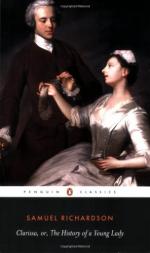Let me tell thee, Jack, I see not why (to judge according to our principles and practices) we should not be as much elated in our march, were this to happen to us, as others may be upon any other the most mob-attracting occasion—suppose a lord-mayor on his gawdy—suppose a victorious general, or ambassador, on his public entry—suppose (as I began with the lowest) the grandest parade that can be supposed, a coronation—for, in all these, do not the royal guard, the heroic trained-bands, the pendent, clinging throngs of spectators, with their waving heads rolling to-and-fro from house-tops to house-bottoms and street-ways, as I have above described, make the principal part of the raree-show?
And let me ask thee, if thou dost not think, that either the mayor, the ambassador, or the general would not make very pitiful figures on their galas, did not the trumpets and tabrets call together the canaille to gaze at them?—Nor perhaps should we be the most guilty heroes neither: for who knows how the magistrate may have obtained his gold chain? while the general probably returns from cutting of throats, and from murders, sanctified by custom only.—Caesar, we are told,* had won, at the age of fifty-six, when he was assassinated, fifty pitched battles, had taken by assault above a thousand towns, and slain near 1,200,000 men; I suppose exclusive of those who fell on his own side in slaying them. Are not you and I, Jack, innocent men, and babes in swaddling-clothes, compared to Caesar, and to his predecessor in heroism, Alexander, dubbed, for murders and depredation, Magnus?
* Pliny gives this account, putting the number of men slain at 1,100,092. See also Lipsius de Constandia.
The principal difference that strikes me in the comparison between us and the mayor, the ambassador, the general, on their gawdies, is, that the mob make a greater noise, a louder huzzaing, in the one case than the other, which is called acclamation, and ends frequently in higher taste, by throwing dead animals at one another, before they disperse; in which they have as much joy, as in the former part of the triumph: while they will attend us with all the marks of an awful or silent (at most only a whispering) respect; their mouths distended, as if set open with gags, and their voices generally lost in goggle-ey’d admiration.
Well, but suppose, after all, we are convicted; what have we to do, but in time make over our estates, that the sheriffs may not revel in our spoils?—There is no fear of being hanged for such a crime as this, while we have money or friends.—And suppose even the worst, that two or three were to die, have we not a chance, each man of us, to escape? The devil’s in them, if they’ll hang five for ravishing three!
I know I shall get off for one—were it but for family sake: and being a handsome fellow, I shall have a dozen or two young maidens, all dressed in white, go to court to beg my life—and what a pretty show they will make, with their white hoods, white gowns, white petticoats, white scarves, white gloves, kneeling for me, with their white handkerchiefs at their eyes, in two pretty rows, as his Majesty walks through them and nods my pardon for their sakes!—And, if once pardoned, all is over: for, Jack, in a crime of this nature there lies no appeal, as in a murder.




